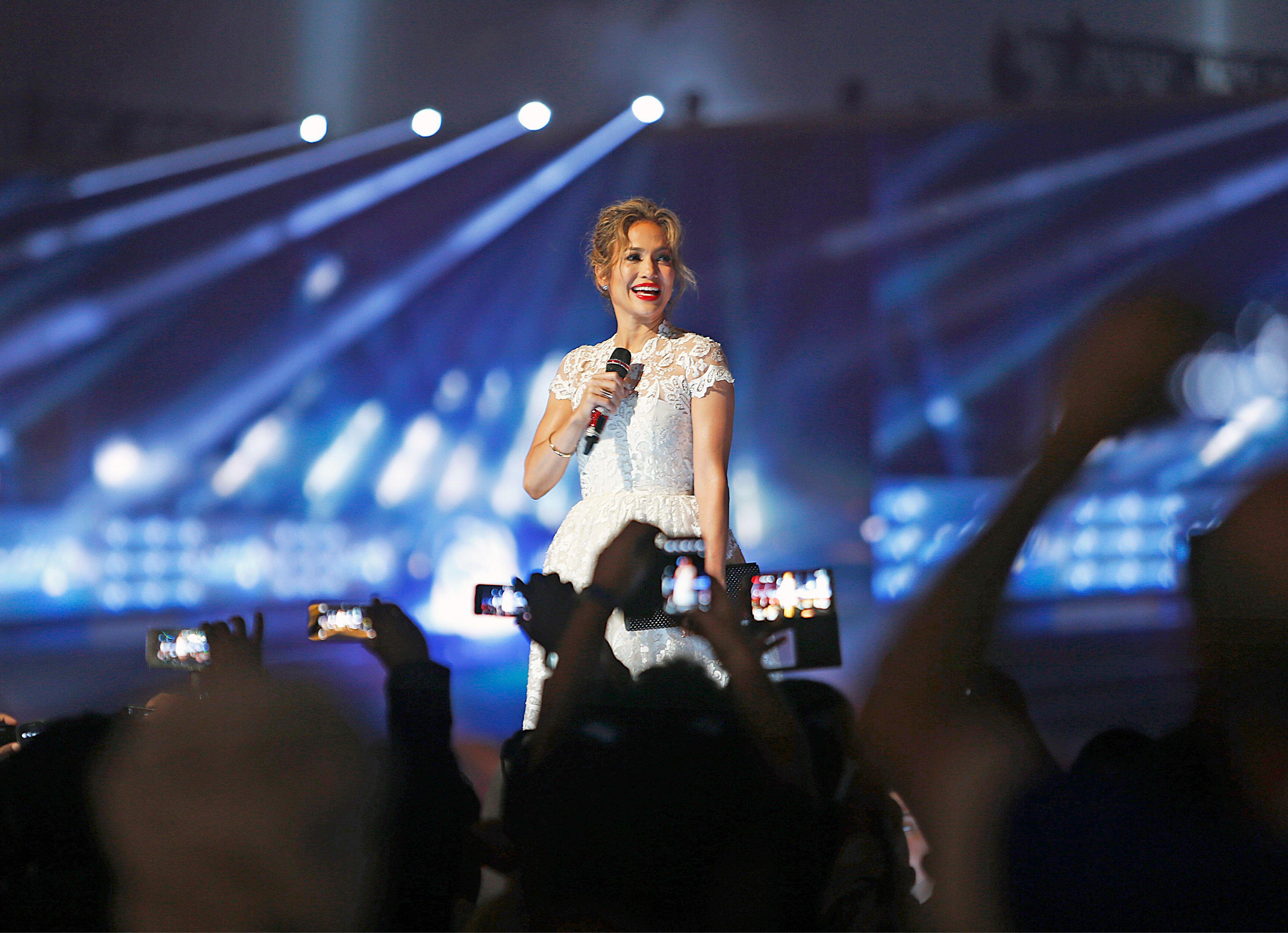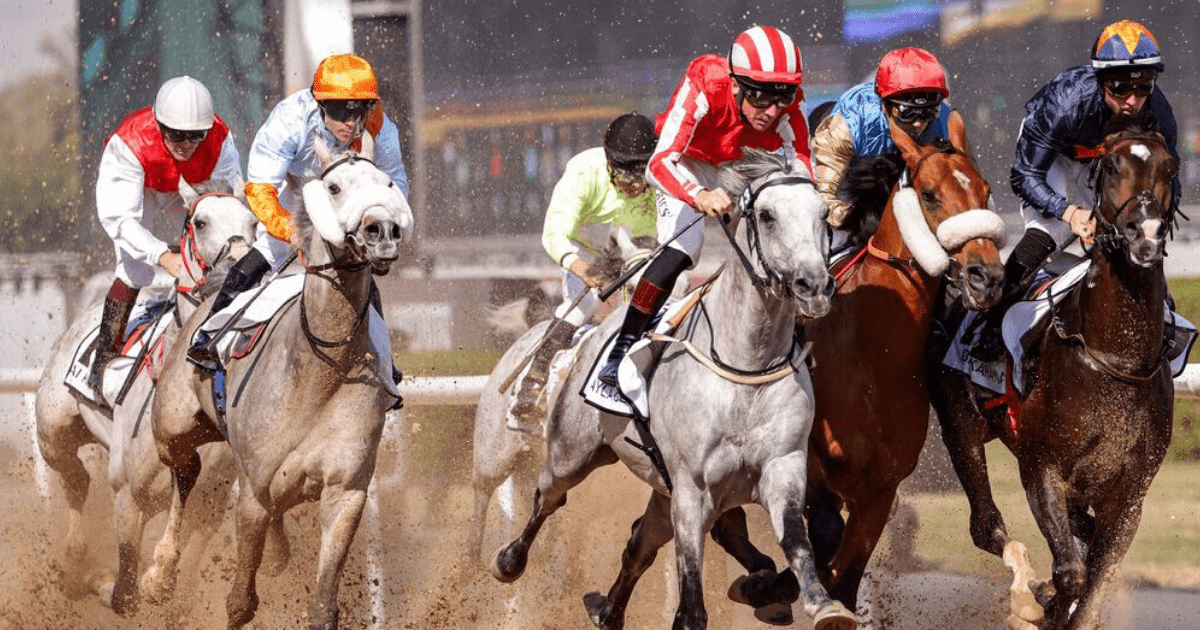Strict Rules and Star-Studded Lineup
As Frankie Dettori gears up to ride at the Dubai World Cup, spectators can expect a refined atmosphere with no drunken antics or skimpy outfits. This prestigious event, known for its £24 million prize money, attracts stars from around the globe, including performances by A-listers like Jennifer Lopez.
A Must-Do for Sports Enthusiasts
Despite the lack of traditional British racecourse liveliness, the Dubai World Cup has become a must-do for sports enthusiasts. With big names like Sir Alex Ferguson and Andrew Lloyd Webber participating, the event draws thousands of punters for both on-track excitement and off-track entertainment.
Spectacular Off-Track Entertainment
Off-track entertainment at the Dubai World Cup is a sight to behold, with a £40,000 style stakes prize fund, Guinness world record-breaking firework displays, and celebrities like Peter Crouch and Abbey Clancy mingling with the global elite and royalty in the luxury stadium.
The Brainchild of Sheikh Mohammed
The brainchild of UAE's prime minister Sheikh Mohammed, the Dubai World Cup has grown into a global spectacle. With a rich history dating back to 1996 and the establishment of the impressive Meydan racecourse in 2010, the event has solidified its place on the world stage.

From Racing to Royalty
Despite controversies surrounding Sheikh Mohammed, the event continues to attract viewers from 150 countries and boasts a star-studded lineup on and off the course. With Westerners allowed to consume alcohol in designated areas, the Dubai World Cup offers a unique blend of elegance and excitement.
The Road to Sporting Superpower
Beyond horse racing, the UAE's ambitions to become a sporting superpower are evident with investments in Formula One, football, and ownership of major sports teams. Despite competition from neighboring countries, the Dubai World Cup remains a premier event on the international sporting calendar.
Human Rights Allegations
While the UAE faces scrutiny for its human rights record, including allegations against Sheikh Mohammed, the Dubai World Cup continues to captivate audiences with its blend of glamour and competition. Despite controversies, the event remains a highlight for sports enthusiasts and celebrities alike.
Frequently Asked Questions
How important is a racing horse’s lineage?
While pedigree can be an indicator of potential, it is not the sole determinant of a racehorse’s success. A horse’s lineage may suggest an inherited aptitude for speed or endurance, but training, health, and temperament are also influential factors. A horse’s natural ability can be maximized by good training, and it may even outperform horses with impressive pedigrees.
What is the age at which a horse should begin racing training?
Although horses can begin basic training at a young age, they usually start more intensive race training and conditioning around the age of two. The horses’ bodies will be mature enough to withstand the strain of racing, while still young and adaptable. The exact timing can vary depending on each horse’s temperament and development.
What health precautions do you need to take when training a horse for racing?
To prevent injury or illness, racehorses need to be given the attention they deserve. Regular veterinary checks, vaccinations and dental care are important. Monitoring the horse’s signs of fatigue, discomfort or strain is equally important. A well-planned training program that allows for a gradual increase in intensity will help reduce the risk of musculoskeletal injury.
What is the role of the jockey when training a racehorse?
Racehorses are trained by jockeys, who play an important role. Jockeys not only provide feedback to the horses on their performance during training, but they also educate the horses about racing tactics such as pacing and positioning. A good jockey becomes attuned to the horse’s strengths and weaknesses, which is indispensable for race preparation.
What diet is the most suitable for a horse that races?
A racehorse diet must be of the highest quality and balanced precisely to meet their energetic requirements for training and racing. It generally consists of a combination of high-grade hay, grains such as oats or barley, and commercially prepared feed designed for racehorses. The diet should also be supplemented by essential vitamins and mineral to promote overall health and performance.
How often should racehorses be trained?
Racehorses are trained according to their individual needs, fitness levels, and race schedule. Typically, they would have a daily routine consisting of exercise such as walking, trotting, and cantering, with more exertive work such as galloping or breezing several times a week to build stamina and speed. Rest days allow the horse time to recover from training and to avoid overtraining.
Statistics
- The average racehorse reaches its peak physical ability between the ages of four to five, with some variation based on the breed and individual development.
- Studies suggest that proper early training can reduce the risk of musculoskeletal injuries in racehorses by up to 50%.
- Around 80% of thoroughbred racehorses begin their racing careers by the age of two, according to industry estimates.
- Racehorse mortality rates during racing have been observed to be between 1.5 to 2 deaths per thousand starts, depending on the racing jurisdiction.
- Approximately 70% of a racehorse’s diet consists of forage, with the remainder made up of grains and supplements to meet their high-calorie needs.
- The Injury Database from The Jockey Club reports that synthetic racing surfaces have a lower horse fatality rate than dirt tracks, with a statistically significant difference of 1.2 fatalities per thousand starts on synthetics compared to 2.0 on dirt tracks.
External Links
racingpost.com
theridinginstructor.net
thoroughbredracing.com
keeneland.com
grayson-jockeyclub.org
thoroughbred-racing.net
How To
How to teach a horse racing tactics
To teach a racehorse racing strategies, you need to combine trackwork with guidance from a professional jockey. Practice gate starts, pace, positioning and responding to different tempos in a race. Play different race scenarios in order to develop adaptability, and to expose the horse to competitive dynamics. Well-trained horses can execute their riders’ instructions and make pacing adjustments. This will greatly influence the outcome of races.
Did you miss our previous article…
https://www.sportingexcitement.com/horse-racing/harry-redknapps-grand-national-dream-crushed-by-rule-change/

